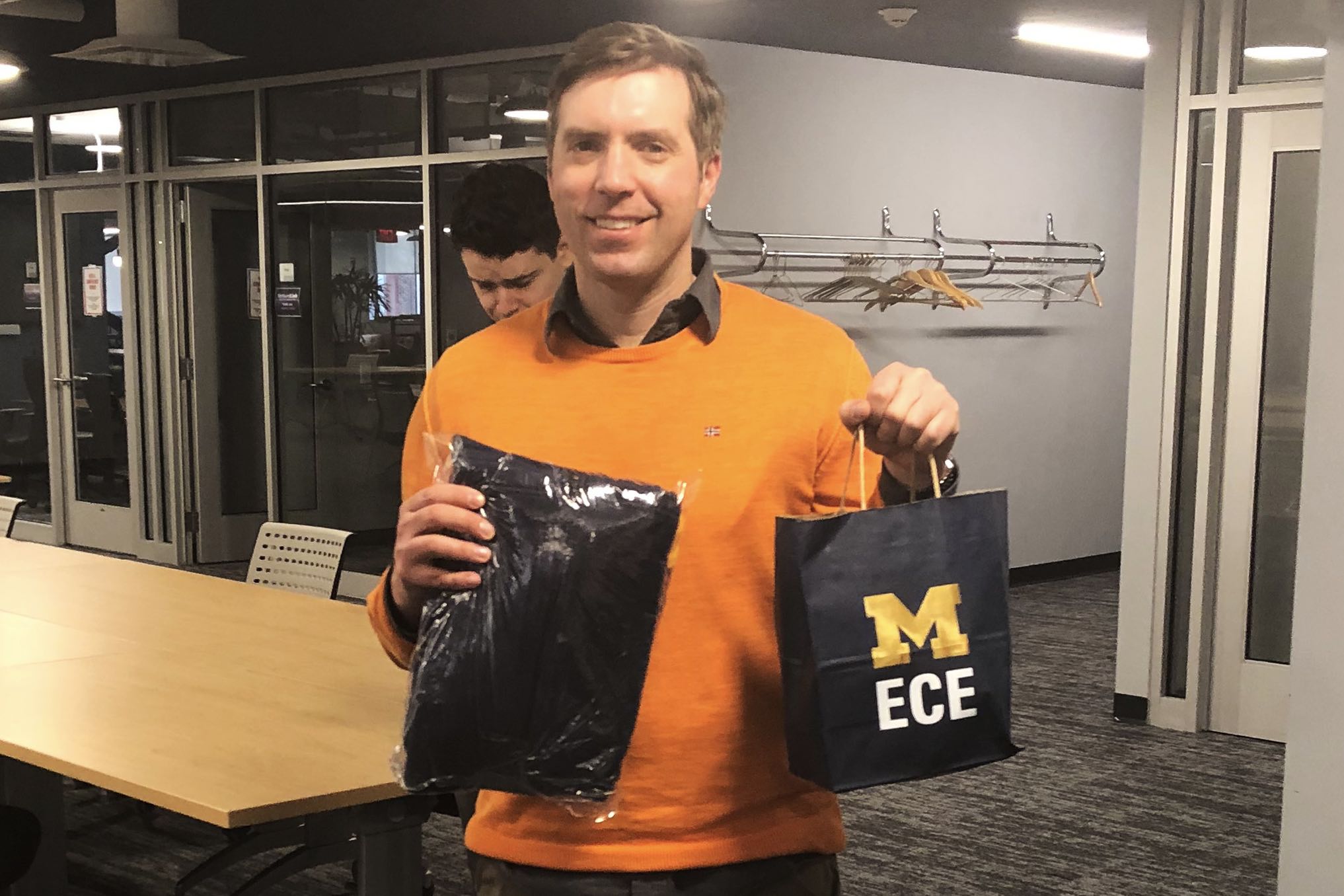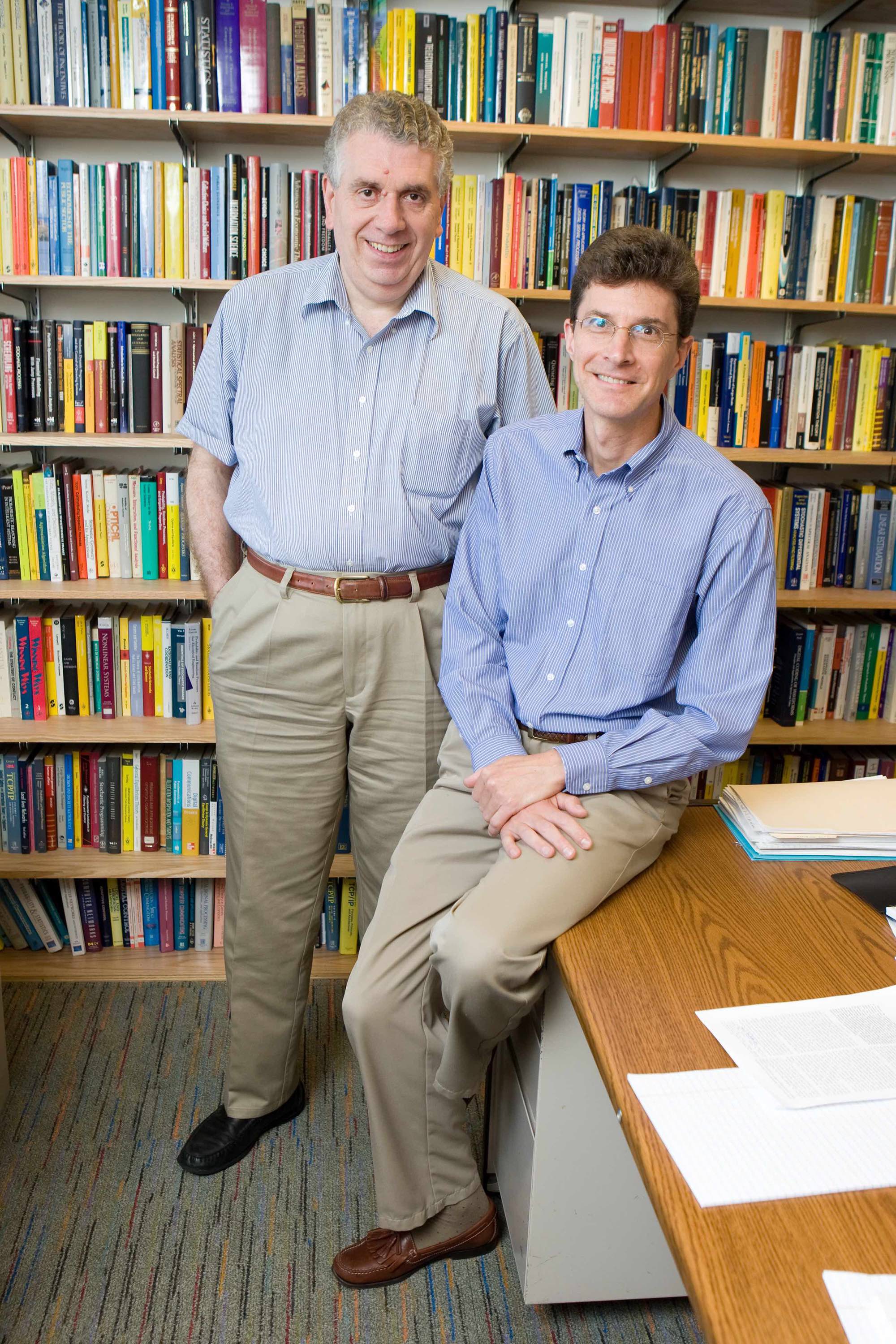Data security for a safer world
ECE alum Kurt Rohloff helped create one of the world’s best homomorphic encryption software libraries, and he reflects on how his time at Michigan helped shape his career.

 Enlarge
Enlarge
9/11 changed everything for Kurt Rohloff. Having grown up in the metro New York City, 9/11 felt especially close to home. It set him on a path to a career in security and U.S. defense.
“I got really interested in the areas of data science, analytics, privacy and how one could use privacy technology to enable free speech,” Rohloff says. “For example, a journalist sharing information in places where there’s a repressive government. Also, how we can use data science and data analytics to understand the impacts of policy decisions and things like that.”

 Enlarge
Enlarge
In 2014, he co-founded the PALISADE open-source homomorphic encryption software library, now widely used in the defense industry, and he led the defense industry consortium that originally developed it.
PALISADE is a modular library that supports flexible customization and deployment of encrypted computing technology. It supports post-quantum encryption protocols, meaning that these protocols are resistant to attacks even from quantum computing devices.
“I believed this technology could really change the world and make the world a much better place,” Rohloff says.
In 2017, Rohloff co-founded Duality Technologies where he currently serves as CTO. Duality is a data security company that addresses the need of enterprises to collaborate on sensitive data. Their award-winning platform, known as SecurePlus™, uses a type of homomorphic encryption, which enables secure analysis and AI on encrypted data. Insights can be derived from sensitive data without exposing the data itself, meaning enterprises can leverage advanced cryptographic methods for real-world data collaborations, while complying with data privacy regulations and protecting their IP. Their goal is to maximize digital trust and data utility.
Prior to Duality in 2015, Rohloff founded Avometric LLC, an R&D consulting firm that supports the US Department of Defense and broader defense industry. At Avometric, Rohloff supports multiple USAF and DARPA subcontracts to address data security and privacy challenges associated with legacy software systems. He focuses on software architecture, applied cryptography, network security, and secure control systems.
Rohloff joined the New Jersey Institute of Technology (NJIT) as an Associate Professor in 2014. As co-founder and Director of the NJIT Cybersecurity Research Center, he oversaw the growth of the center from $0 funding to over $10M in 2 years. He teaches classes on computer security and oversees and executes advanced research and development projects for cyber-security and secure computing at scale. He is the recipient of a DARPA Young Faculty Award and a DARPA Director’s Fellowship.
Rohloff attended Georgia Tech for his undergraduate degree before earning a master’s and PhD in Electrical Engineering: Systems (now Electrical & Computer Engineering) at Michigan. After a year as a postdoctoral researcher at the University of Illinois at Urbana-Champaign, he spent nearly a decade executing projects in the areas of large-scale distributed and secure computing at BBN Technologies, a research and development company owned by Raytheon.
The Michigan Difference

 Enlarge
Enlarge
Rohloff says that his education at Michigan was crucial in helping shape how he thought about and approached problems. Rohloff’s PhD advisor was Stéphane Lafortune, the N. Harris McClamroch Professor of EECS, and he also worked with Professor Emeritus Demosthenis Teneketzis. One of the most important skills Rohloff learned from them, Rohloff says, was how to communicate clearly and effectively about his research. While he was a student at Michigan, he never had a paper rejected from an academic conference.
“The aspect of how we could go and present complicated ideas and give them to potential sponsors was something that was very important to me that I picked up during my graduate training at Michigan,” Rohloff says.
Rohloff says one of the biggest advantages of working with Lafortune was the networking.
“It was always a very positive social experience going to conferences with him where he’s so tremendously well-respected in the community,” Rohloff says. “It made it so much easier for me to approach other people.
Another defining moment for Rohloff at Michigan is that he met his wife in the North Campus dining hall (now Pierpont Commons). She was an PhD student in Art and Architecture.
“We actually had blue and yellow flowers for our wedding,” Rohloff says.
Rohloff’s advice to current U-M students, especially those in engineering, is to get out of their own bubble and experience the wealth of opportunities and experiences Michigan has to offer.
“What attracted me to Michigan was the full, big university experience – it wasn’t just a tech school in a major city,” Rohloff says. “It had anything and everything under the sun and an extremely good reputation. It was the full package all at once in one place.”
What attracted me to Michigan was the full, big university experience – it wasn't just a tech school in a major city.
Kurt Rohloff
Rohloff loved exploring the arts, such as the student galleries and expositions, as well as the Ann Arbor Art Fair every summer. He joined a masters swim club at the YMCA to meet people from outside the university and would run the trails around North Campus.
“It’s a wonderfully diverse, wonderfully engaged community and inclusive college town,” Rohloff says. “Whether it’s art, whether it’s theater, whether it’s dance, it’s a whole cultural experience in a very livable environment. I love how integrated Michigan is with the fabric of Ann Arbor.”

 Enlarge
Enlarge
 MENU
MENU 
